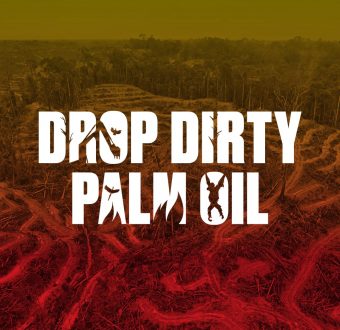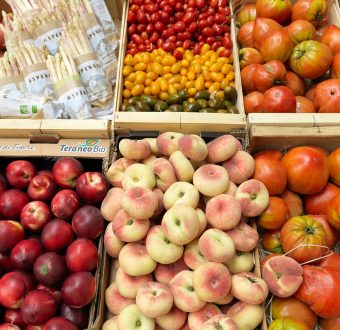Greenpeace’s flagship, the Rainbow Warrior, arrived in Mexico this week to raise awareness about sustainable agriculture in the country and the Mexican government’s responsibility to protect the country to reckless corporate interests.
Among the expected responsibilities of the Mexican government are:
- Introducing legislation preventing industry from pouring hazardous chemicals into bodies of water.
- Invest in clean energy including solar, wind, geothermal and photovoltaic.
- Halt plans for deep sea oil drilling
For two weeks, the ship will sail around the country spotlighting these issues with its last port in Veracruz by mid February.
The arrival of the ship Rainbow Warrior is an inspiring element for communities and citizens we use the power we havehto transform our environment if we act together to protect it.
Local farmers received the Rainbow Warrior on its first port stop in Mazatlnwho gave the crew baskets of native corn. With the gift came a warming that commercial transgenic corn plantations couldcontaminate the native plant in Mexico.
Sinaloa is the main producer of corn in Mxico. Between 2012 and 2013, companies like Dow Agrosciences, PHI Mxico and Monsanto, requested permits to introduce the commercial planting of transgenic corn in all of the growth area of the state.
Despite the risk than genetically modified seeds have on the health and the environment, and even though the producers in Sinaloa are increasing their yields with conventional corns, which have a lower price and better acceptance in the national and international markets, the Mexican government at a local, national and federal level, are ignoring the eco-agricultural potential and continues to boost the industrial agricultural model that damages the eco systems, pointed out Alonso Campos, producer and president of the States Corn Council, and president of Sinaloas Agricultural Movement (MAS).
The agricultural model that dominates at a global level is the industrial one, based in destructive technologies, excessive use of agro-chemicals and with production systems destined to benefit only transnational companies and to give them the full control on the production, distribution and consumption of those foods and that implies negative impacts for the field, the producers and the consumers, stated Silvia Daz, coordinator of the Sustainable Agriculture and Transgenics for Greenpeace.
What we need is an ecological agriculture, that decentralizes the power by way of empowering farmers to find local solutions to problems like the soils fertility, local plagues and similar issues, stressed Daz.



